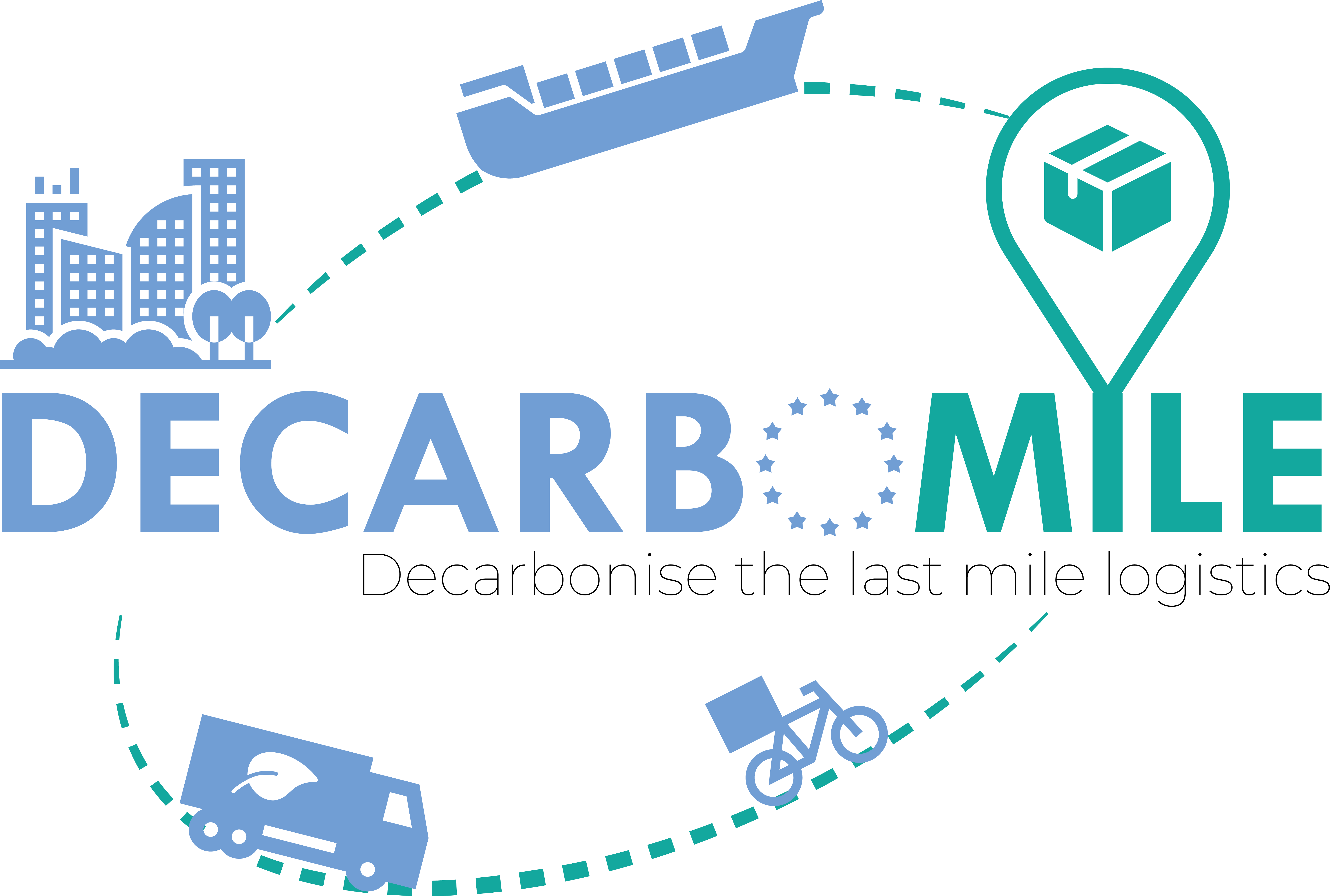


Logistics is at the core of modern society and essential to bring food and goods in the heart of cities, where a majority of Europeans live. Transport efficiency in Europe is a challenge, EU statistics show that vehicles are filled on average to only 57% of their weight capacity, and 27% of vehicles are running empty. Significant changes are needed in supply chain operations, especially on the last mile logistics chain. Amongst the EU Green Deal objectives, several aim at urban logistics: 55% reduction of emissions from cars by 2030, 50% reduction of emissions from vans by 2030. In additional, on a local level there is an increasing push for zero-emission zones in inner cities. 26 of the world’s largest cities signed up to the Green and Healthy streets pledge3. Last mile logistics need therefore new urban logistics consolidation frameworks.
In this context, the main objective of DECARBOMILE is to develop tailored solutions and demonstrate the full potential of decarbonised last-mile logistics in 4 living labs in line with their technical, environmental and local socio-economic contexts.
Gathering 31 partners from 10 different countries, DECARBOMILE aims to trigger an unprecedented improvement of the green last mile logistics in Europe. To reach that goal, DECARBOMILE relies on a strong experience of decarbonating urban logistics through European initiatives such as CIVITAS. Partners will build upon all previous results to develop improved delivery methods, tools and methodologies, and implement them across Europe. The solutions developed in DECARBOMILE will demonstrate the full potential of decarbonised last mile logistics in four living labs (in Logrono - Spain, Nantes -France, Hamburg - Germany and Istanbul - Turkey) and 4 satellites (Tallinn - Estonia, Getafe - Spain, Ghent - Belgium and Sarajevo - Bosnia and Herzegovina) will be involved at a smaller scale to test and study the solution in their own local contexts. To be successful in its implementation, DECARBOMILE will rely on developed methodologies to implement the new solutions and delivery methods in collaboration with all relevant local stakeholders, based on their needs and behaviours. The relation with and between stakeholders will be facilitated by the creation of a collaborative urban consolidation logistics framework that will include a digital platform, methodologies for collaboration, and ICT and IoT tools. This common framework, along with tailored innovative business models and recommendations on local policies, will allow for a strong collaboration during the project, allow to learn more about the end-users’ needs and behaviours. The delivery methods will be strongly improved with urban consolidation centres, micro urban consolidation centres including smart lockers, innovations on cargo bikes and how they can be used with load pooling for instance, electric barge and more. The goal is to use and improve existing solutions and allow their interoperability and modularity to improve their efficiency and use their complementarity.